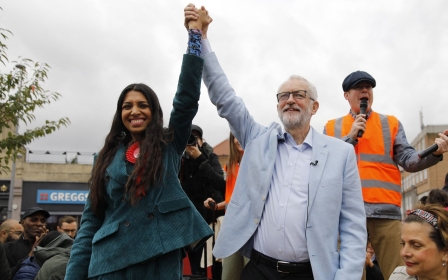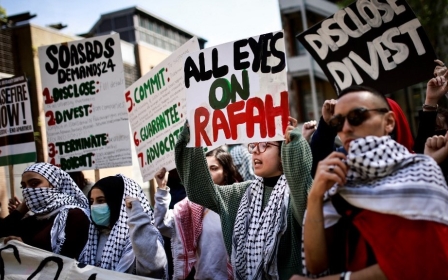Largest UK pension fund sells off Israeli assets amid member anger over Gaza

The UK's largest pension fund has sold off £80m ($101m) in assets linked to Israel amid internal pressure from members, the Financial Times has reported.
The Universities Superannuation Scheme (USS) manages investments totalling £79bn in total and has more than 500,000 members who work for universities and higher education institutions in the UK.
Pressure has grown on the fund to withdraw its Israeli investments in light of the ongoing war on Gaza and Israel's longstanding occupation of Palestinian land.
At least, 40,000 Palestinians have been killed in Israel's ongoing military campaign in Gaza, the vast majority of them women and children.
The country faces genocide charges at the International Court of Justice, which has also ruled that the occupation of Palestinian land is unlawful.
New MEE newsletter: Jerusalem Dispatch
Sign up to get the latest insights and analysis on Israel-Palestine, alongside Turkey Unpacked and other MEE newsletters
According to the Financial Times, USS was reducing its exposure in Middle Eastern markets “in response to the financial risks that became apparent”.
Middle East Eye has asked USS for comment.

In May, MEE reported that there was anger within the academics union, the University and College Union (UCU), over USS's continued investment in Israeli firms.
The union criticised the USS for refusing to review investments in companies connected to Israel's actions in Gaza.
The UCU highlighted how the USS issued a statement seven days after Russia invaded Ukraine, stating that there was a "financial" and "moral" case for divestment from its Russian holdings.
UCU general secretary Jo Grady had described the USS's refusal to divest from companies linked to Israel's actions in Gaza as "shameful" and called for the pension fund to reconsider its position.
"It is shameful that USS still hasn’t made moves towards divesting from Israel’s war machine," Grady told MEE at the time.
Middle East Eye delivers independent and unrivalled coverage and analysis of the Middle East, North Africa and beyond. To learn more about republishing this content and the associated fees, please fill out this form. More about MEE can be found here.




